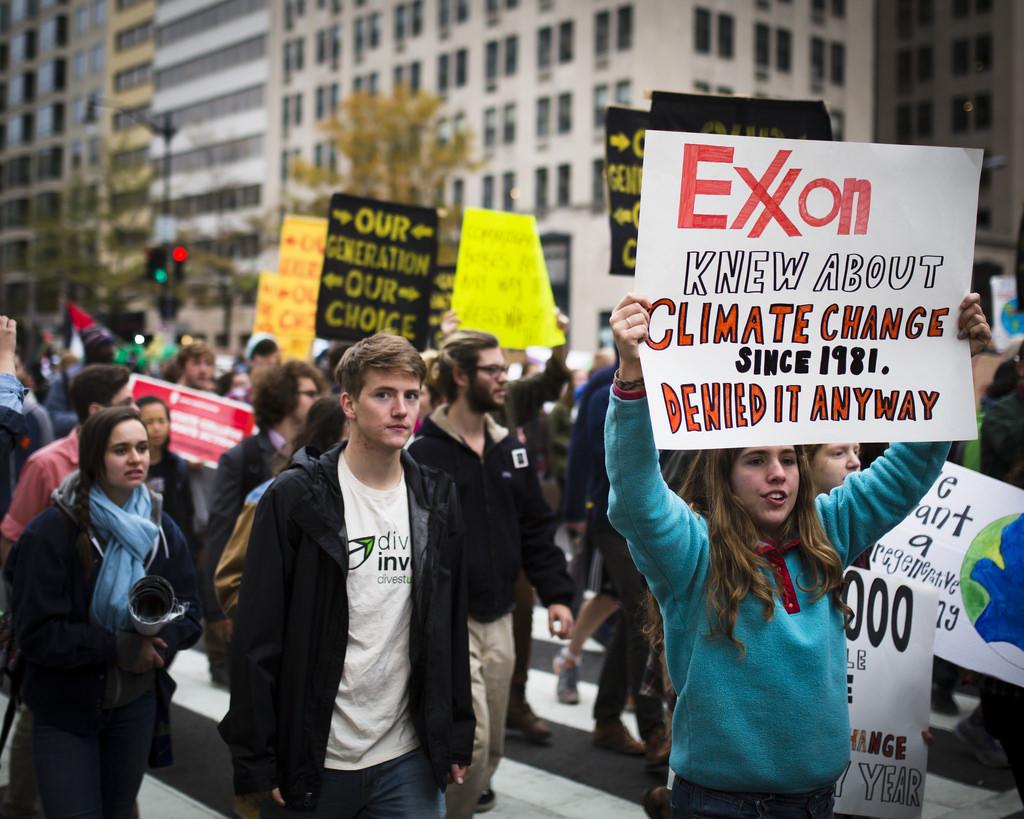Editorial: Immediate action necessary to limit affects of climate change


News reports from 2015 suggest Exxon Mobile conducted several studies on climate change. Eighty percent of the studies determined human activities worsen climate change, but the majority of those released to the public suggest the phenomena is a sham.
Climate change can seem like a far-off phenomenon, even to those who accept the science supporting it — about half of Americans believe it will never affect them personally.
Those people may want to reconsider their answers — according to a recent United Nations report, we have just 12 years to limit climate change. Not centuries, not decades, but only a dozen years.
This is a far grimmer prognosis than we’d previously thought. But according to the UN’s report, nothing short of a rapid economic revolution is what we need to turn the clock around. The fate of our planet rests in the hands of about 100 corporations, which are moving further away from economic revolution in large part thanks to the rollback of important EPA measures to reduce climate change. They should be moving in the opposite direction.
The report, published by the Intergovernmental Panel on Climate Change Oct. 1, details a world of problems — a complete melting of ice during summers in the Arctic, the extinction of coral reefs and a rise in sea level of several meters, to name a few.
Even in the wake of a report that gives such a dire outlook on the future of our planet, many sources still stress the importance of the individual in fighting the effects of climate change — by recycling, carpooling and watching how much water your household uses. This couldn’t be further from the truth — we’re well past the time where any individual can make a meaningful contribution to climate change.
A 2017 report from the Carbon Disclosure Project’s Carbon Major Database revealed that about 70 percent of the world’s greenhouse gas emissions comes from only 100 corporations worldwide. Before we can even entertain the potential for changing the way the climate is heading, these large companies must put in the necessary effort.
But major corporations are deliberately misleading the public about their carbon emissions. According to a 2015 investigation, ExxonMobil has conducted numerous studies on climate change — 80 percent of their private studies conclusively stated climate change was real and exacerbated by man-made activities. But 80 percent of the studies it has released to the public suggest climate change is a farce.
For corporations to reverse their environmentally harmful habits, they need to recognize that climate change is a legitimate phenomenon exacerbated by their actions — but if companies can’t do it on their own, the government needs to tighten regulations.
Unfortunately, the EPA has done the exact opposite recently — because of a March 2017 executive order, federal agencies are no longer allowed to take into account the long term effects of carbon pollution in their studies. This is exactly the opposite of what we should do in light of the UN study — which specifically warns against excessive carbon emissions in the world’s future.
The government and corporations must work together to keep climate change at bay by passing and adhering to policies that will decrease carbon emissions into the environment. But right now, all they’re doing is adding fuel to the fire.
Recent Posts
SGB addresses concerns about ICE presence on campus, hears SJP lawsuit against administration, approves governing code bill
At its weekly meeting on Tuesday at Nordy’s Place, Student Government Board heard concerns about…
ACLU of Pennsylvania sues Pitt over SJP suspension
The ACLU of Pennsylvania filed a federal civil lawsuit against the University of Pittsburgh and…
Marquan Pope: The ultimate shark
One of the most remarkable things about sharks is that an injury doesn’t deter them.…
Who Asked? // Do we really get a summer vacation?
This installment of Who Asked? by staff writer Brynn Murawski mourns the seemingly impossible perfect…
Notes From an Average Girl // Notes from my junior year
In this edition of Notes From an Average Girl, senior staff writer Madeline Milchman reflects…
Meaning at the Movies // The Power of the Movie Theater
In this edition of “Meaning at the Movies,” staff writer Lauren Deaton discusses her love…

